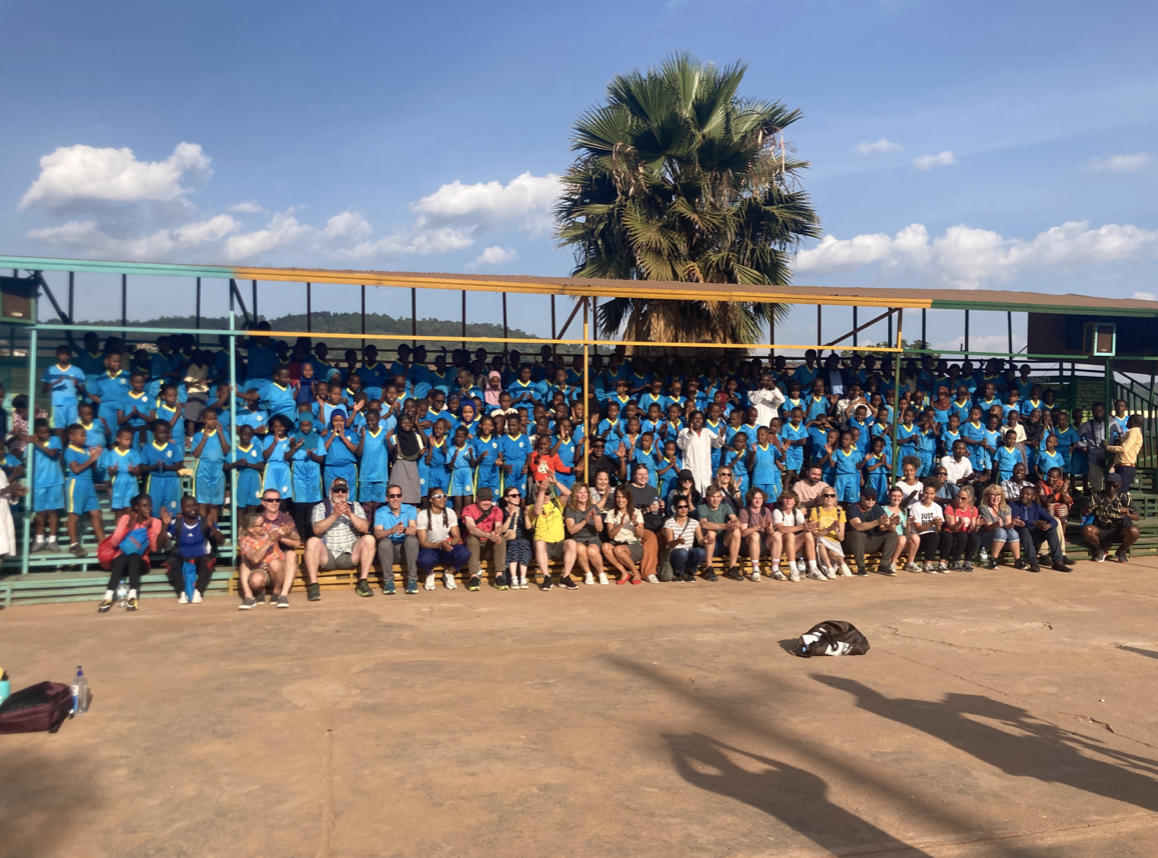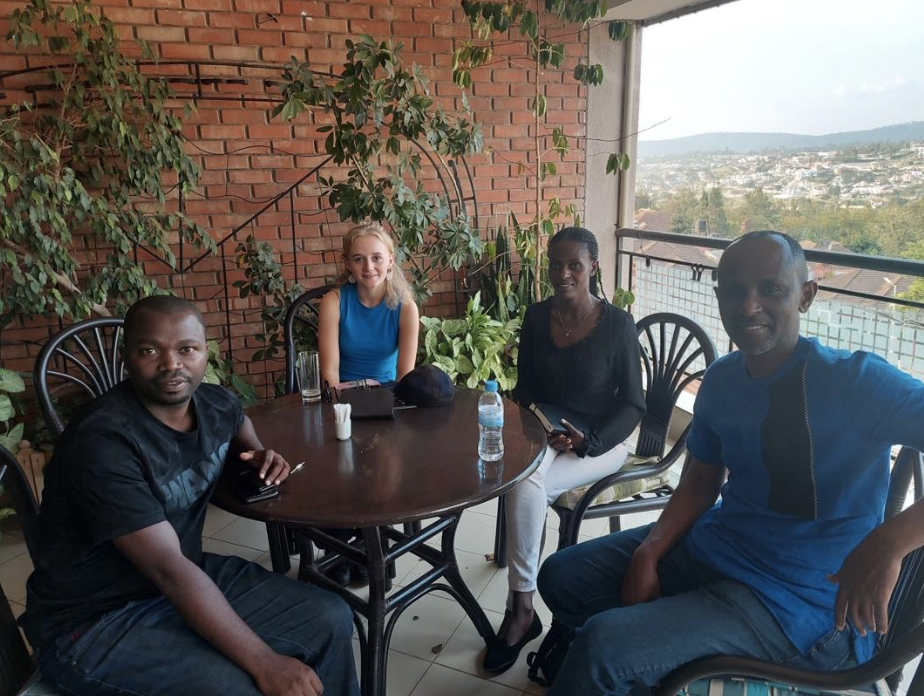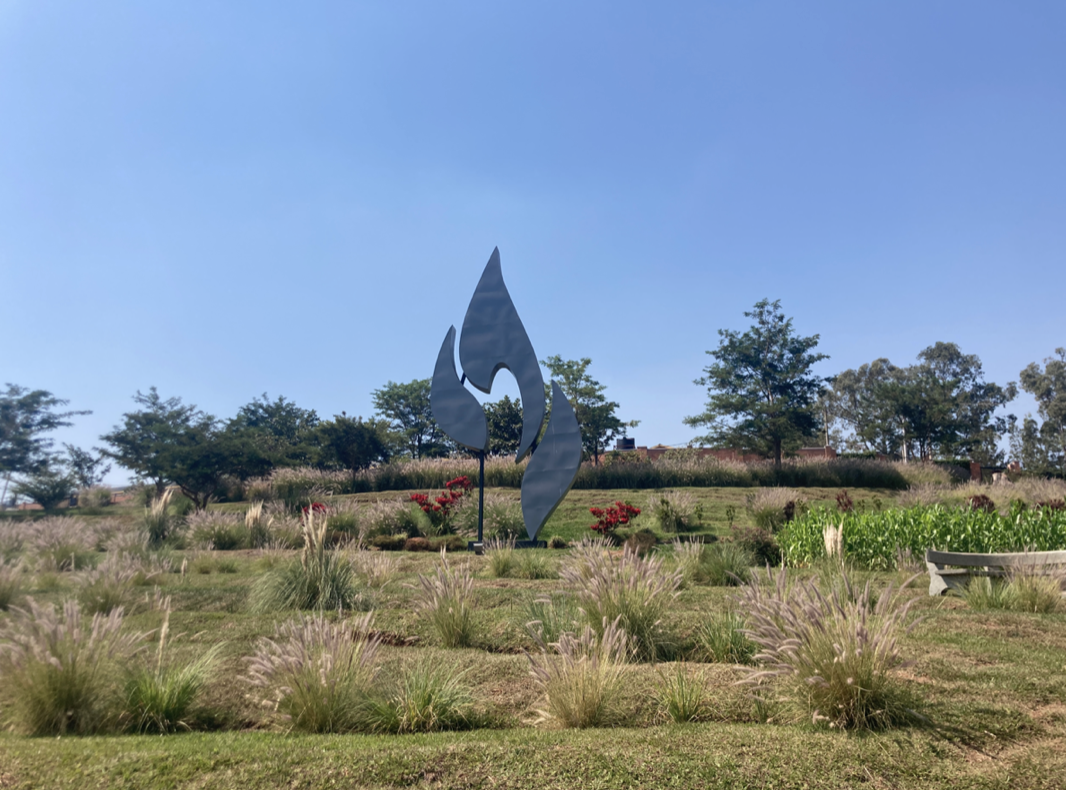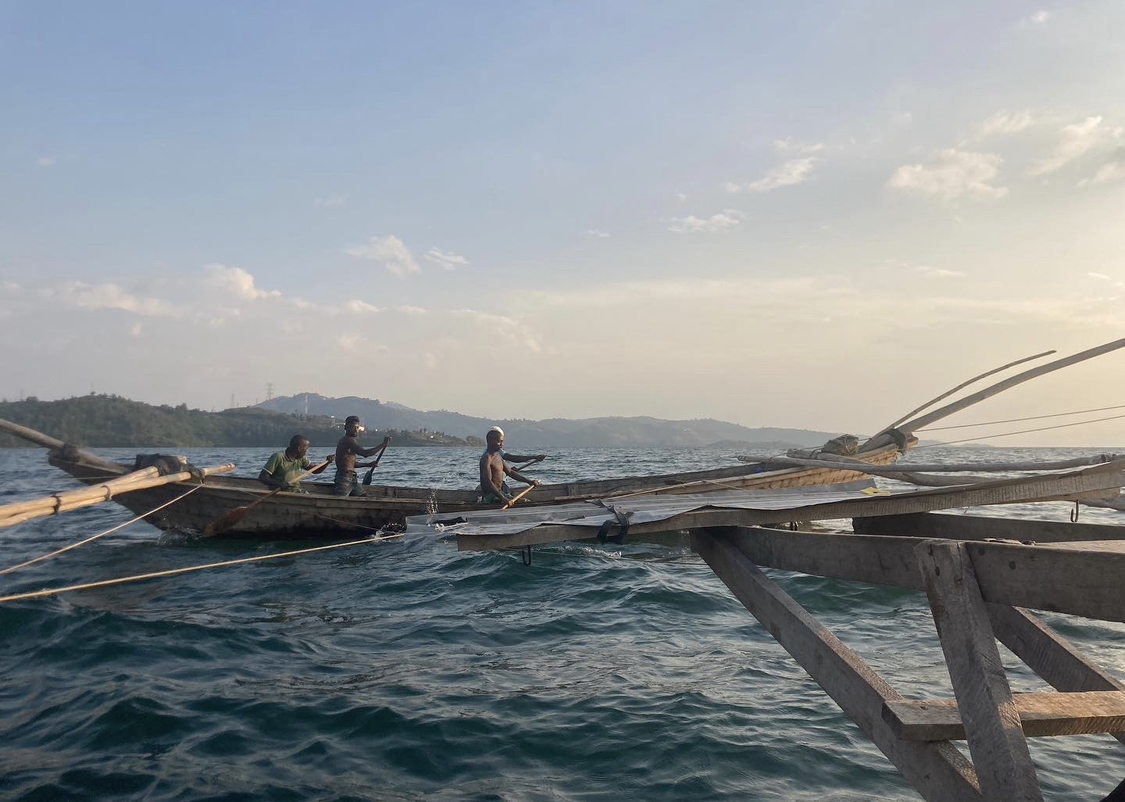Visiting Rwanda. Football for Peace: Ishami Foundation in action.
Written by Anna Birakos, (Ishami Foundation Project Outreach Volunteer Officer).
I’ve been volunteering for Ishami Foundation for over a year, whilst completing an MA in History, specialising in the 1994 genocide against the Tutsi. In June 2022, I visited Kigali to learn more about the work Ishami Foundation do on the ground in Rwanda. Ishami Foundation uses sport and storytelling to educate communities and individuals about the 1994 Genocide against the Tutsi in the UK. We also have several community impact coaches based in Rwanda who work with children and community members to facilitate football sessions based on our core values which accentuate the importance of collaboration, respect, communication, and unity.
During my trip, I met with the CEO and founder of Ishami Foundation, Eric Murangwa Eugene. Although Eric lives in London, we coincided our visits to Rwanda to ensure I was able to help with a pre-planned sporting programme initiative for volunteers of KidsPlay at Good Heritage Academy. The event was led by our coaches, Evariste Habimana and Oscarie Iragena and involved thirty international volunteers, as part of our sport for social development initiative. Our coaches led team building exercises, football drills and games which focused on building communication, teamwork, peace and connectivity through sport. Although the session was organised for international volunteers of a different NGO (KidsPlay), it followed the typical structure of the weekly football sessions which are arranged for our Rwandan Ishami team players. It was a fantastic opportunity to learn more about our projects and was incredibly well received by our participants!
Whilst in Kigali, I also met with Olivier Brave Ngabo, the Programs Director of Ibuka Rwanda. Ibuka is the largest Rwandan memory and survivor organisation, it maintains strong links with Ishami Foundation, along with the wider diasporic survivor communities around the world. Ibuka means ‘remember’ in Kinyarwanda. Olivier kindly explained how the organisation works in Rwanda and internationally. Its outreach and success since 1994 are incredibly impressive; he also detailed the barriers facing the future progression of its work and its connection to Ishami. Olivier later showed me around Nyanza genocide memorial where over 105,000 victims are buried. The newly established memorial garden, created by the First lady of Rwanda, uses nature to symbolically memorialise and explain the facts of the 1994 Genocide against the Tutsi. For example, in the dry garden, one million stones symbolise the over one million victims of the genocide. There are caves, a small stream (symbolic of a river), and long grasses which emulate the conditions where people were murdered or where survivors hid during the 100 days. Seeing the memorial was an incredibly moving experience which had a profound effect on me. It was a privilege to meet Olivier and a powerful reminder of the importance of supporting diasporic Rwandan survivor organisations around the world.
During my trip, I was also incredibly privileged (and lucky enough!) to visit the Angolan Black and White Colobus Monkeys of the Nyungwe Forest, join the traditional Rwandan fishermen on a night fishing exhibition for Sambaza on Lake Kivu and experience the wealth of arts and culture that Kigali has to offer at Inema Art Centre. In my weeks there, I fell in love with Rwanda; the welcoming and kind people that I met, and the beauty of the country is like nothing I’ve ever experienced before.
Working with the Foundation in Rwanda not only gave me the opportunity to learn, first-hand, about the impact that Ishami Foundation has in Rwanda and the significance of using football as a tool to promote social cohesion and unity, but it also solidified the fundamental importance of remembering, uniting and working together, across continents, to ensure ‘Never Again’ becomes a reality, rather than a slogan. I am incredibly grateful to have met and worked with our remarkable coaches and partners, and I feel extremely lucky to have had the privilege of visiting the beautiful land of a thousand hills.
If you are interested in learning more about the 1994 Genocide against the Tutsi and supporting our reconciliation and awareness projects, both in Rwanda and in the UK, please get in touch.




